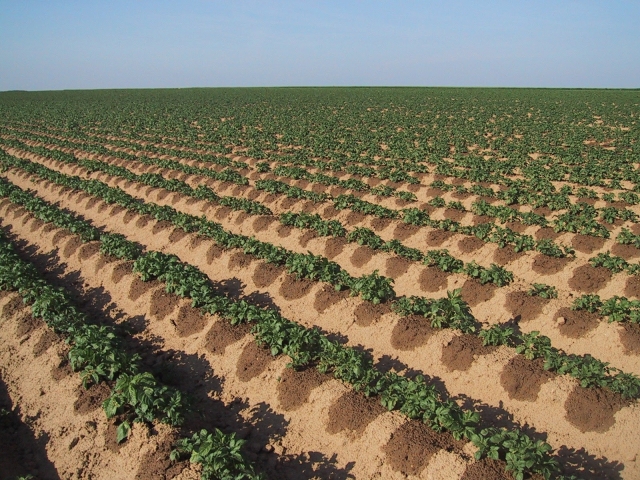Howard Epstein – MAKING THE DESERT BOOM II
Notwithstanding that the great and the good of the Knesset, and the far more numerous less-admirable MKs, are now vacationing, democracy-loving Israelis, peaceful and decorous – France please note – and undiminished in size and fervour, were out in force Motzei Shabbat for the 32nd week in a row.
The pause in Israeli parliament is mirrored by inertia in the courts which will start deliberating upon the several petitions before them in September. What will happen if they declare the “justice” reforms unconstitutional is yet to be seen. Will the police or the army support the laws of the Knesset, or the army or the police seek to enforce those of the courts? It was for just such a scenario that the phrase “matza pudding” emerged.
We can allow ourselves a break from business as usual and consider something fresh. Well fresh if you think that Bibi’s announcement last week of a fast rail link to Eilat was novel, but a little old hat if you recall that I wrote about it some six weeks ago, restating my blogs published in January 2017.
I wrote of Paran, a plain around a hundred kilometres north of Eilat, that would be well under an hour’s high-speed train commute from central Tel Aviv.
Imagine it. The European lifestyle – the elegant boulevardier life, where the urbane can languorously sip l’espresse and pick at a croissant – is being crushed under the weight of unceasing immigration from the Middle East and Africa, so that only one European-style thoroughfare – Rothschild Boulevard in Tel Aviv – will faithfully maintain that panache and elegance. Yet, Israel could be replicating it well under an hour away at Paran, where there will be boulevards aplenty. Israeli Yuppies need that as a minimum to entice them away from Tel Aviv. What else might they expect? All of the following:-
lakes, beaches, amenities • sports stadiums, concert halls, and shopping malls • factories and service centres • banks, insurance companies, and the civil service • institutions, universities and R&D facilities • concert halls and theatres • hotels, restaurants, coffee shops, bars and nightclubs • conferences, festivals • infrastructure – and jobs and homes.
The homes may be built in parallel, but no one will move there on a promise. Much will have to be provided up-front before the first housing is opened up for habitation.
For the creation of Brasilia, a competition was held, which sparked the imaginations of over 5,000 architectural teams worldwide, to satisfy an 1827 proposal to move the capital from Rio de Janeiro to the centre of the country. Building started in 1956 and, within four years, the city was officially inaugurated as Brazil’s capital. Lying on a tropical plain almost one thousand kilometres from Rio – and at an elevation of over 1,000 meters (3,600 feet), over ten times the altitude of Paran, by 2011 Brasilia was home to some 2.5 million people, in a city of nearly 6,000 kms2 (or 2,316 mls2). That blesses Brasilia with a population density of 480/km2 (1,245/mile2) – about one-fifth of the density under which Tel Aviv presently labours.
An artificial lake was created to provide increased water supply and humidity. By 2015, the Paranoá Lake, circumference of some 80 km (50 mi), boasts many water sports facilities and Brazil’s second-largest marina. Clearly, despite its remoteness, on statistics alone, Brazil made a success of Brasilia.
Israel can easily replicate that, and established Israeli desalinization technology will ensure that Paran’s new lake will contain sweet water. Whole ecosystems for bio-diversity and education will be created.
Apart from the water amenities, not only yuppies, but most other sectors of Israeli society will clamour for the better lifestyle that Paran will offer (just as Palm Springs has many “refugees” from LA). But there will be much, much more.
For its Millennium celebrations, the UK built in London a dome 365 meters in diameter and 95 meters high. Providing, as it does, an area of some 105,000 square meters, it forms today the UK’s second-largest indoor space. Placing several such domes around Paran will give the new city climate-controlled environments for all kinds of sports and activities.
The desert sun is a problem but think of the absence of humidity and compare that with TA. This promises a supreme health bonus: Israel should build its future city to return city dwellers to absolutely pure air – and another Israeli first. The desert air is indeed pure and, for once, the advent of man will not spoil its natural pristine condition, for there will be a complete absence of gasoline- or diesel-powered vehicles. All vehicles will be powered by electricity or hydrogen fuel cell (whose waste product is H2O). In fact, the chances of any family owning (read: having to afford) their own car, will be remote. Cars will be summoned as and when required for short trips and long, Uber-style by app. They will be autonomous vehicles, too, so safety will improve (fewer Israeli drivers – more Israeli programming) and the number of emergency vehicles (police, fire, ambulance) required thereby reduced.
The programme is plainly ambitious, and ambition costs money. So how well-placed is Israel to plan it and put it into effect, fiscally speaking? The answer, in short, is “uniquely well”.
Next time: Can Israel afford not to do it?
© August 2023 Howard Epstein – www.howardeptein.com









